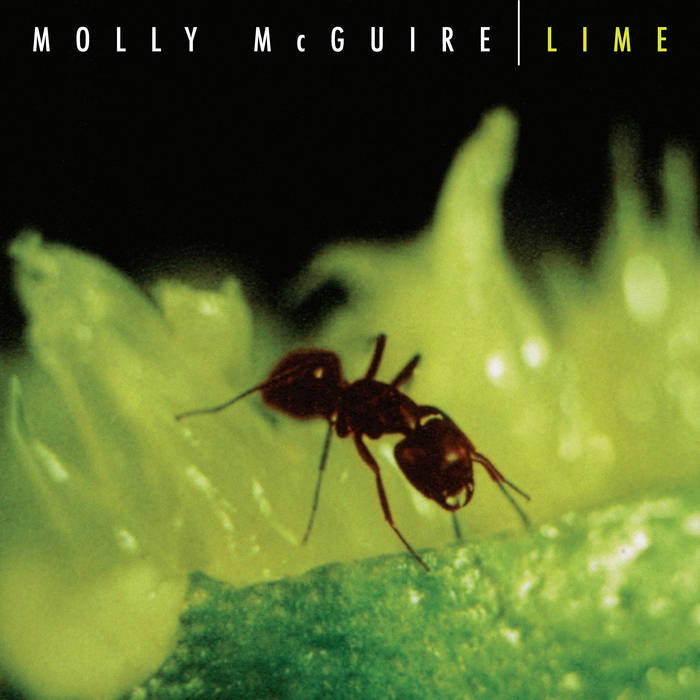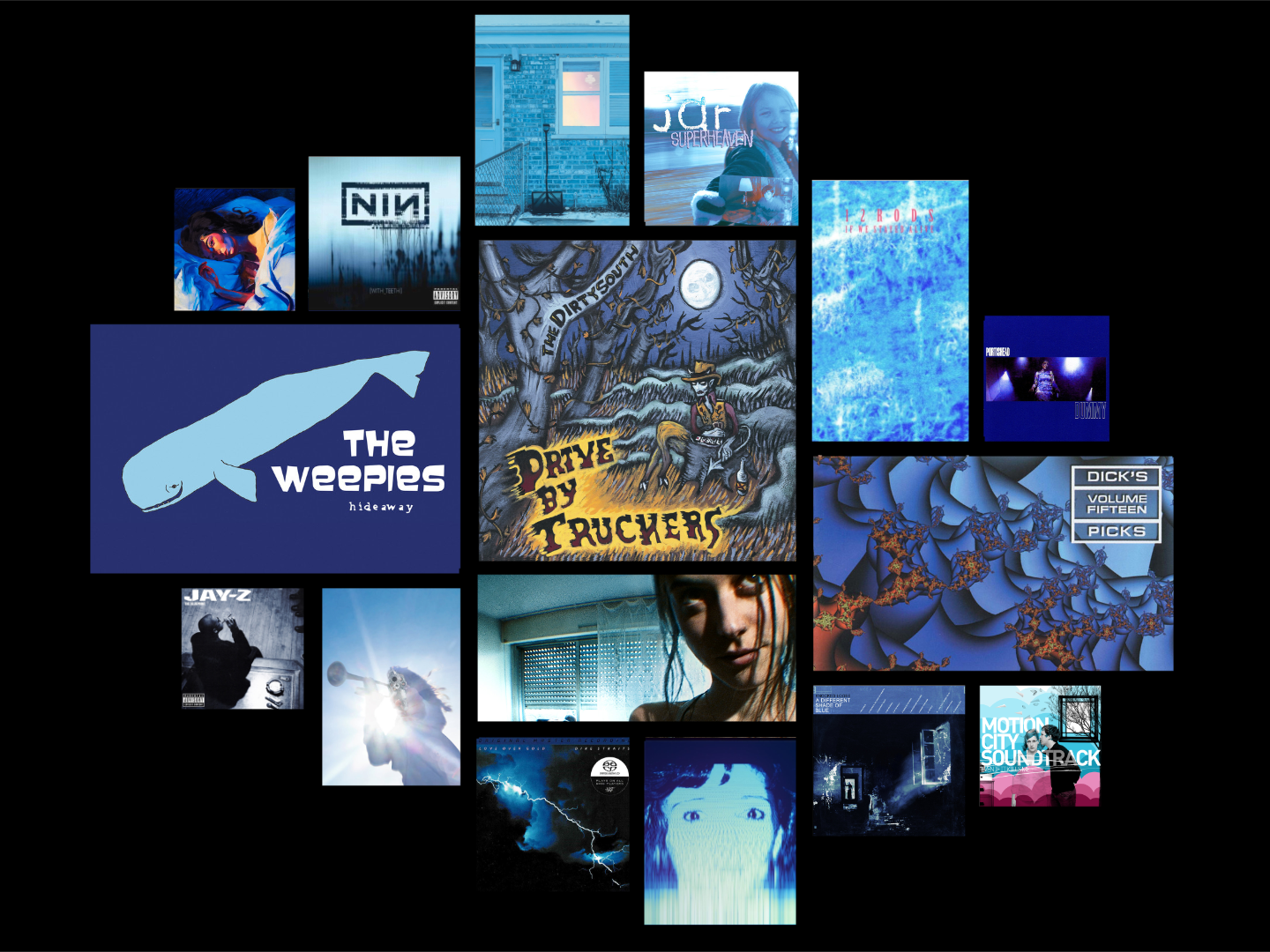Pictoria Vark – Nothing Sticks | Album Review
/Get Better Records
I keep forgetting my headphones. The snow finally melted here in DC, so I’ve been going on lots of walks, but I keep forgetting my earbuds in my other jacket or purse. I always notice when I’m halfway down the block, and I always decide it’s not worth it to turn back. That means I’ve been going on quiet walks lately. These walks are usually in the evening, at a time when I watch the streetlights turn on while I’m still far from home. I love these walks. The sidewalk is just uneven enough that I can’t look at my phone without risk of tripping, so I don’t. It’s one of the only times of day I feel truly lost in the sounds of my street, neighborhood, and city. I’m aware of every song playing in every bar I pass, what time the birds stop singing, and that one annoying car alarm. I usually spend these walks lost in thought, thinking about last year, the future, and writing this review. Pictoria Vark seems to be on the same walk with me.
Pictoria Vark’s sophomore album, Nothing Sticks, takes Victoria Park’s ongoing, contemplative self-awareness up a notch as she explores both the uplifting and grueling sides of such ruminations. It’s been almost three years since the Chicago-based artist released her acclaimed debut album, The Parts I Dread. Much like her new record, Park’s debut was similarly introspective, weighing her loneliness, her anxieties about the past, and her focus on making music. However, due to the passage of time and her ascendancy as an indie rock darling, Park’s introspection has expanded, widening to look at her life on the other side of that previous worry. Written over Park’s pulsing heartbeat bassline, Nothing Sticks is a pensive indie rock collection that invites listeners to reconcile with, well, how nothing sticks.
The album begins with a dirge as a rolling drumbeat melds with Park’s bass tone through the introduction of “Sara.” It’s a somber melody that turns from concrete to atmospheric and back again over and over, with each clash scaling further and further up. Park’s bass leads the charge as a trumpet overpowers the drum’s steady rhythm. The song falls back, and a guitar croons. It surges again, blanketing her vocals in a balanced cacophony. Park was inspired by environmental sounds and describes this weaving brass encroachment as reminiscent of “a high school marching band in the distance.”
After establishing the stakes with this introduction, Park rewinds with “No One Left,” a song where shuffling reversed audio is balanced with a guitar digging deeper and deeper as Park sings a repeated admittance, “I think I could love you.” From there, “San Diego” captures her biggest sound yet, thanks to the use of a string section, which has a bright and romantic effect. This elevation leads to “I Sing What I See,” Park’s first song on the album contending with her experiences performing. Much like lights on stage or the roar of a crowd, the song engulfs her.
The song I have been singing the most under my breath is “I Pushed It Down,” which begins with a bare beat before adding a guitar strum for the chorus. A symphony suddenly sparks around the minimalist sound, and a violin becomes a second voice, complementing Park’s as it ducks and dives around her words. The song has a starry quality that winks and waves as Park sings the melancholy refrain, “I pushed it down.”
“Make Me A Sword” sits at the heart of the album. Heart meaning that it’s the center of the project, the most vulnerable, and the place the titular sword is likely aiming towards. In the song, Park confronts both herself and her music career head-on, contending with the relationship she has with her coping mechanisms and her onstage presence. Lyrics paint Park in different roles: a Sisyphean character, a court jester, and even a knight as she grapples with understanding her coping mechanisms and letting them go. Lyrics like “Make me a sword to point against me, I’ll be your shield if it protects me” illustrate this two-fold dynamic over a rhythm that would feel familiar coming out of a basement at a house party. It's a song that dances with multicolor lights and buzzes with warmth.
“Make Me A Sword” fades, and the distorted “Lucky Superstar” begins. This is the album’s loudest track, with a fuzzy and almost haunting feeling as Park repeats “big, blue heart” over an ever-crashing, scratchy crescendo. “Where It Began” follows on an opposite note, delivered with a kind of stripped-down melancholia. It builds like the pressure behind your eyes right before you cry. The album as a whole starts to slow before “We’re Musicians.” In the final track of the album, Park’s bassline bops to a beachy tune, throwing out defeating lyrics like “thank God for good days and bad luck” or “your eyes don’t crease when you smile at me” before drowning the words in total shred.
When describing this album, Park explained, “Everything we want to last, whether it’s a relationship, a moment, a career, or a way of life, will come to an inevitable end.” And like she suggests, this album has to end too, so, with the sound of endlessly crashing waves, it does.
Nothing Sticks isn’t reassuring, but it’s not dooming either. It's a normal statement that comes from years of consideration and, therefore, is perfect for applying meaning and reflection. The point of this album isn't to get lost in these contemplations but rather to accept the need to let them go. So I am going to keep going on my long walks, and I’ll still be meditative sometimes or whatever, but maybe next time I’ll remember my headphones.
Caro Alt (she/her) is from New Orleans, Louisiana, and if she could be anyone in The Simpsons, she would be Milhouse.






